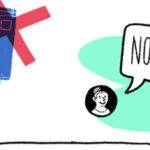How to Take Digital Notes on Your Laptop; It Can be Better than Paper

The days of the pen and paper seem to have disappeared. Most employees bring their laptop or tablet to a meeting rather than a notebook. Even students can be seen typing away on their keyboards as teachers share details of deadlines, dates, formulas, and details. But as we utilize our devices, are we simply documenting exactly what was said, or are we learning and understanding the content?
According to a study conducted by researchers at Princeton, Pam A. Mueller, and UCLA, Daniel M. Oppenheimer, and as reported by the Harvard Business Review, when people take notes using a laptop, they are simply entering notes verbatim rather than listening to the speaker. In other words, “mindless transcription” as Mueller and Oppenheimer have defined it. They have discovered in their research that there is a connection between the pen and paper and comprehension. If this is true, are we as employees jeopardizing our ability to learn when we ferociously type away notes? Are we so focused on making sure that we document WHAT was said rather than understanding the meaning behind it?
Taking notes has a cognitive effect on the brain. Studies have shown that when we write something down, it imprints itself into our minds. It is better than simply reading or listening because the act of writing (or typing) allows us to make a connection between ideas and concepts and to refer back to them at a later time. Have you ever re-read something that you wrote a week or a month ago? Maybe you even stumbled across a journal entry from several years ago? You may have forgotten that you even had those thoughts but because you wrote them down, they are now forever imprinted. This is the benefit of taking notes whether in a meeting, a classroom, or a training session.
Although research has shown that the act of writing is better than typing, it is possible to take digital notes on your laptop or device. Remember that the point of note-taking is to process, understand, and recall information so why not do so in the best way possible. In fact, taking notes digitally could prove to be better and more efficient for comprehension and recall than paper if you follow some simple tips.
- Be aware of what you are writing. Instead of simply transcribing every detail that the speaker says, try entering the content into your laptop in your own words. This will help you to learn and process the information. When you use your own words, you are more apt to comprehend what you have heard.
- Focus on listening. Rather than writing verbatim, summarize the key points of what is being said. Listen carefully and then create bullet points of the content. When you are so focused on documenting the details, you may lose the context and meaning of what was said.
- Slow down. Many of us pride ourselves on the speed at which our fingers fly across the keyboard. However, this may not necessarily be a positive attribute when we are trying to learn. Slow down, think about the information that you are typing; allow the thoughts to process between your brain and your fingers.
- Be creative. Link ideas from your previous experiences with concepts that you are hearing. Allow your mind to wander a bit and connect topics and thoughts with information that you are learning.
- To-do lists, deadlines, and how-tos; the purpose of documenting these is to ensure that we remember them at a later time. In other words, what gets written gets remembered. For many people, if it is not on the calendar, they will not remember it. Use your digital tool to help with recall and jog your memory. As you hear important dates, enter them into a digital format, not for the sake of simply keeping track of them but more importantly, to help your brain recall them.
Note-taking is a critical skill to help your mind process, understand, and recall information. Without it, students struggle in school, employees fall behind or miss opportunities, and we forget important details in our every day lives. Whether you use a laptop, tablet, or smartphone, digitally documenting information will help you to remember, understand, and learn. Digital technology is at your fingertips; why not use it to make your efforts more efficient and effective!




